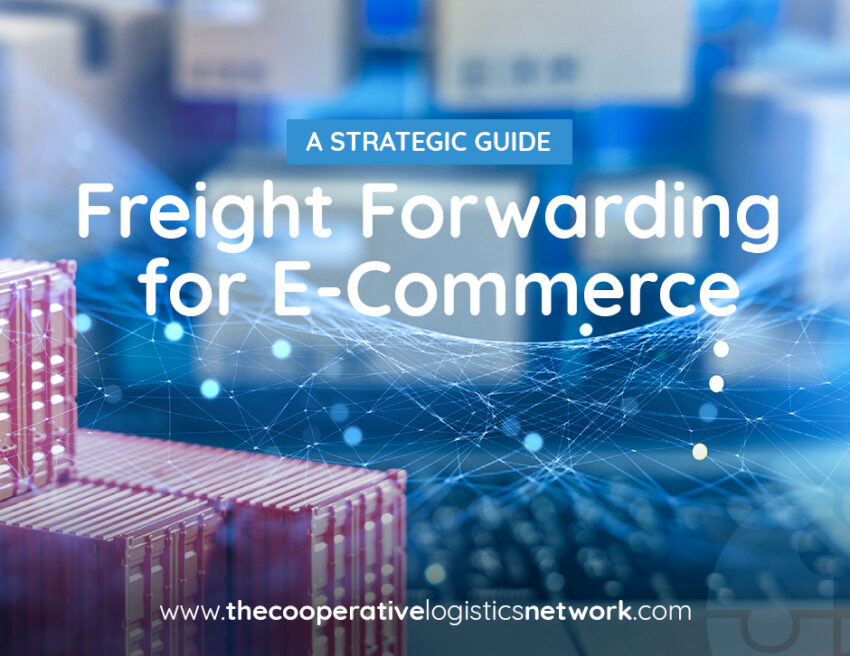The rise of e-commerce has revolutionized global trade, transforming consumer expectations and logistics operations alike. As online retailers compete for faster deliveries and lower shipping costs, freight forwarders must navigate an increasingly complex landscape of e-commerce shipping solutions. Unlike traditional freight forwarding, which often deals with bulk shipments and predictable supply chains, e-commerce logistics requires greater agility, flexibility, and technological integration.
A robust supply chain serves as the backbone of every successful e-commerce operation. The U.S. e-commerce sector alone surpassed $1.2 trillion in revenue in 2024, yet even industry giants grapple with persistent logistical hurdles. Recent data highlights the fragility of modern supply chains: 82% of businesses encountered at least one major disruption within a year, while half struggled with three or more breakdowns annually—proving that resilience is just as critical as revenue in today’s volatile market.

The Unique Challenges of E-Commerce Freight Forwarding
E-commerce shipping differs from traditional logistics in several key ways. Freight forwarders must contend with high shipment volumes, fluctuating demand, and tight delivery timeframes. Additionally, the rise of cross-border e-commerce has introduced complexities such as customs clearance, compliance with international trade regulations, and last-mile delivery coordination.
One of the biggest challenges in e-commerce freight forwarding is speed versus cost. Consumers have grown accustomed to expedited shipping options like Amazon Prime’s two-day delivery. However, achieving this level of efficiency requires significant investment in technology, warehouse automation, and streamlined supply chain networks. Freight forwarders must balance affordability with speed to ensure they remain competitive in this fast-paced sector.
Another pressing issue is last-mile delivery, which often determines the overall success of an e-commerce transaction. While freight forwarders excel at managing global shipments and customs processes, last-mile logistics require local expertise, advanced tracking capabilities, and reliable courier partnerships. Delivery failures or delays at this stage can lead to dissatisfied customers, refund requests, and reputational damage for e-commerce businesses.
The Role of Freight Forwarders in E-Commerce Logistics
To stay relevant in the e-commerce sector, freight forwarders need to provide solutions tailored to the needs of online retailers. This involves offering multi-modal transport options, real-time tracking, seamless customs clearance, and warehousing solutions that support efficient order fulfillment.
Freight forwarders must also integrate digital solutions to improve operational efficiency. E-commerce platforms and digital freight networks are now essential for automating shipping quotes, managing inventory, and ensuring accurate order fulfillment. Companies like Alibaba, Shopify, and Amazon have set new industry standards by adopting AI-powered logistics solutions, pushing freight forwarders to modernize their approach.
Cross-border e-commerce is another growing segment that presents both opportunities and challenges. According to a 2023 report by eMarketer, global cross-border e-commerce sales are expected to exceed $1.5 trillion by 2025. This presents a lucrative market for freight forwarders, provided they can navigate the complexities of international regulations, customs procedures, and multi-currency transactions. Freight forwarders specializing in cross-border logistics must stay ahead of evolving trade agreements, tax policies, and compliance requirements to facilitate smooth global transactions.
Key Shipping Solutions for E-Commerce Freight Forwarders
To meet the demands of online retailers, freight forwarders must offer flexible shipping solutions that optimize efficiency, reduce costs, and enhance the customer experience. Air freight is often the preferred mode for time-sensitive e-commerce shipments, particularly for high-value goods or perishable items. However, ocean freight remains a cost-effective option for bulk shipments, especially when transit times are not critical. Rail and road freight can serve as middle-ground alternatives, offering a balance between speed and affordability for regional deliveries.
For many e-commerce businesses, third-party logistics (3PL) and fulfillment centers are essential components of their shipping strategy. By partnering with a freight forwarder that offers end-to-end logistics solutions, online retailers can optimize their supply chain, ensuring faster processing times and seamless distribution. 3PL providers enable e-commerce businesses to store inventory closer to end consumers, reducing transit times and shipping costs.
Another crucial component of e-commerce logistics is reverse logistics, or the management of returns. With return rates for online purchases averaging 20-30%, freight forwarders must provide streamlined return solutions that minimize costs and improve efficiency. A well-structured return logistics process enhances customer satisfaction while preventing losses for e-commerce sellers.
The Future of E-Commerce Shipping and Freight Forwarding
As e-commerce continues to grow, freight forwarders must adapt to emerging trends that will shape the future of the industry. The demand for same-day and next-day deliveries is pushing logistics providers to rethink their distribution strategies, leveraging automation, AI, and advanced analytics to optimize supply chains.
Sustainability is also becoming a major consideration in e-commerce logistics. The global push for carbon-neutral shipping solutions has led to innovations such as electric delivery vehicles, green warehousing, and carbon offset programs. Freight forwarders that incorporate eco-friendly shipping practices will not only reduce their environmental impact but also appeal to increasingly eco-conscious consumers and businesses.
Technology will continue to play a crucial role in shaping the future of e-commerce logistics. Blockchain technology, for example, is being explored to enhance supply chain transparency and security, while predictive analytics is helping logistics providers optimize inventory management and shipping routes. Freight forwarders that embrace these advancements will gain a competitive edge in the fast-evolving e-commerce landscape.
Final Thoughts
E-commerce logistics presents both challenges and opportunities for freight forwarders. To succeed in this sector, forwarders must offer flexible shipping solutions, leverage digital technologies, and optimize supply chains to meet the growing demands of online retailers. By staying ahead of industry trends and investing in innovation, freight forwarders can play a vital role in shaping the future of e-commerce logistics.
For freight forwarders looking to expand their e-commerce capabilities, partnering with an international freight network like Globalia Logistics Network can provide access to a global community of reliable agents, shared resources, and exclusive business opportunities. In the rapidly evolving world of e-commerce, collaboration and strategic partnerships are key to long-term success.


